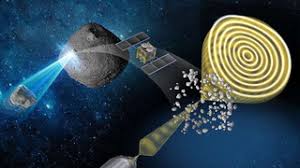Vladimir Putin’s No Chess Master


A terrible thing may be impending in Ukraine. Undoubtedly, subversion, sabotage, and murder await, although such miseries have been going on for some time without the West paying much attention. But a Russian onslaught, to include air and missile strikes followed by an invasion, would be a lot worse. Thousands of people may die, and the foundations of European security would be rocked as they have not been since the early days of the Cold War.
Even so, the degree of public hand-wringing and even despair in the United States is excessive, and not just in comparison with the relative phlegmatism of the Ukrainian population. The commentary on the Russian buildup and threats has taken many forms—pointless quarter-century-old recriminations about NATO expansion, foolish psychotherapeutic diagnoses of Russian President Vladimir Putin’s need for “respect,” assertions that the Biden administration’s weakness created this situation, and, above all, the belief that Putin has not only Ukraine, but the whole West, including the United States, exactly where he wants it. A more balanced consideration is in order.
Ukraine is a problem for Putin’s Russia not because it may join NATO, but because it is democratizing—slowly, awkwardly, imperfectly—and after 30 years of independence is constructing a new national identity. So, too, have the other former Soviet republics, a number of which (Azerbaijan, for example) have quietly sided with Kyiv. The aim of reconstructing if not the Russian empire, then a 21st-century version of it, is slipping out of Putin’s grip, and he knows it. In many ways, what we’re seeing now from Moscow is a spasm of atavistic postimperial assertion, which, rather like British and French intervention in Egypt in 1956, may begin well but will probably end poorly.
The Russian dictator has made demands that he knows cannot be met. He has issued them publicly when such things are usually done in private, meaning that he is looking for a fight on any terms. He has mobilized a large army on Ukraine’s borders—more than 100,000 troops—but not nearly one big enough to subjugate a country of 40 million people, many of whom are not only willing to fight but ready to do so. Urban areas absorb armies as blotting paper absorbs an ink drop, and a Russian invasion will lead to a stream of coffins headed home to a population that has little taste for losses.
Tom Nichols: Only Putin knows what happens next
The stakes are high enough for the West. The Russian post-Soviet state is large but not a superpower, save for the matter of nuclear weapons. A restored Russian empire would make it the most powerful entity in Europe. Even more: The precedent of conquest, or of the massive savaging that the Russian military could inflict, would shatter the European peace that has held (with the exception of the Balkan conflicts) since 1949. It would, moreover, represent the further demolition of interstate-behavior norms that serve smaller countries everywhere.
But the stakes are higher for Russia. It can temporarily insulate itself from economic sanctions, but the cost of war with Ukraine will eventually be even more instability at home. The secret police can poison, imprison, or kill dissident leaders such as Alexei Navalny, but it will have a lot more difficulty massacring crowds of angry mothers of wounded or dead soldiers. A Russia isolated from the West and punished by economic sanctions will become, more than it already is, a kind of vassal state to China, and Russian diplomats and soldiers know that the Chinese are unsentimental in their treatment of their dependents and satellites.
The Western reaction thus far has been prudent and effective. The United States has led effectively, and President Joe Biden has behind him a remarkably bipartisan consensus. The administration has made appropriate threats, prepared appropriate sanctions, and begun taking the most important step, delivering anti-tank and antiaircraft missiles to the willing hands of Ukrainian soldiers. The more and faster, the better.
NATO has not crumbled—just the reverse, in fact. Sweden and Finland have muttered about joining the alliance, the Eastern European allies have been particularly staunch, and even French diplomatic overtures reflect more President Emmanuel Macron’s desire to be the leading statesman in Europe than a desire to appease Russia. Indeed, Putin has given NATO a gift. If the alliance had something of an identity crisis in the 1990s and aughts, now its members can hardly question its necessity. Georgii Arbatov, one of Mikhail Gorbachev’s advisers, had a point in 1987 when he wryly observed that Russia was going to do the West a great disservice by depriving it of an enemy. Having reversed that, Putin has given NATO not only renewed life but vigor.
Western strategic clichés usually portray the Russians as incomparably deft chess masters, wily manipulators of the use of force to support policy, who consistently outplay their Western opponents. But that characterization is less true than one might think. Indeed, American and British intelligence were shrewd in warning of Russian false-flag operations and provocations and in naming a range of Ukrainian quislings who were being vetted to take power. These revelations are an antidote to the poisoned needles being prepared by the Russian secret services.
Anne Applebaum: The U.S. is naive about Russia. Ukraine can’t afford to be.
More to the point, although Putin has hitherto played a weak hand very well, the fact is that the Russian military is not the Wehrmacht, or even the Red Army of old. It has some first-rate bits, some well-trained special forces, and good technology. But it still suffers from all of its old faults, including in maintenance, morale, and initiative. Armed forces reflect their societies, and although Russia is a lot better off than it was in the ’90s, it remains a society with poor public health; a crude, resource-based economy; and a deeply corrupt and self-seeking elite. Russia is also vulnerable to sanctions and cyberattacks. And at the top, the country is led by an aging dictator who does not hear many uncomfortable truths from advisers who know better.
In May 1864, Union forces launched the Battle of the Wilderness, a bloody fight inaugurating the campaigns that ultimately destroyed the Confederacy. But at the outset, a lot of the Army of the Potomac’s leaders had a bad case of nerves. One of Ulysses S. Grant’s staff officers, Horace Porter, recalled after the war an incident when a general bolted into the field headquarters breathing rapidly and saying, “General Grant, this is a crisis that cannot be looked upon too seriously. I know [Robert E.] Lee’s methods well by past experience; he will throw his whole army between us and the Rapidan and cut us off completely.”
Porter recalled that Grant took his cigar out of his mouth, stood up, and replied to the agitated general:
Oh, I am heartily tired of hearing about what Lee is going to do. Some of you always seem to think he is suddenly going to turn a double somersault and land in our rear on both of our flanks at the same time.
And then he tartly ordered the despondent general to go back to his command and think about what the Army of the Potomac was going to do to Lee, rather than the other way around.
Vladimir Putin is not Robert E. Lee. But at a time when statues of Lee are coming down, a bit more of the spirit of Ulysses S. Grant is clearly in order.


 United Kingdom
United Kingdom Argentina
Argentina  Australia
Australia  Austria
Austria  Brazil
Brazil  Canada
Canada  Germany
Germany  Ireland
Ireland  Italy
Italy  Malaysia
Malaysia  Mexico
Mexico  New Zealand
New Zealand  Poland
Poland  South Africa
South Africa  United States
United States 




























